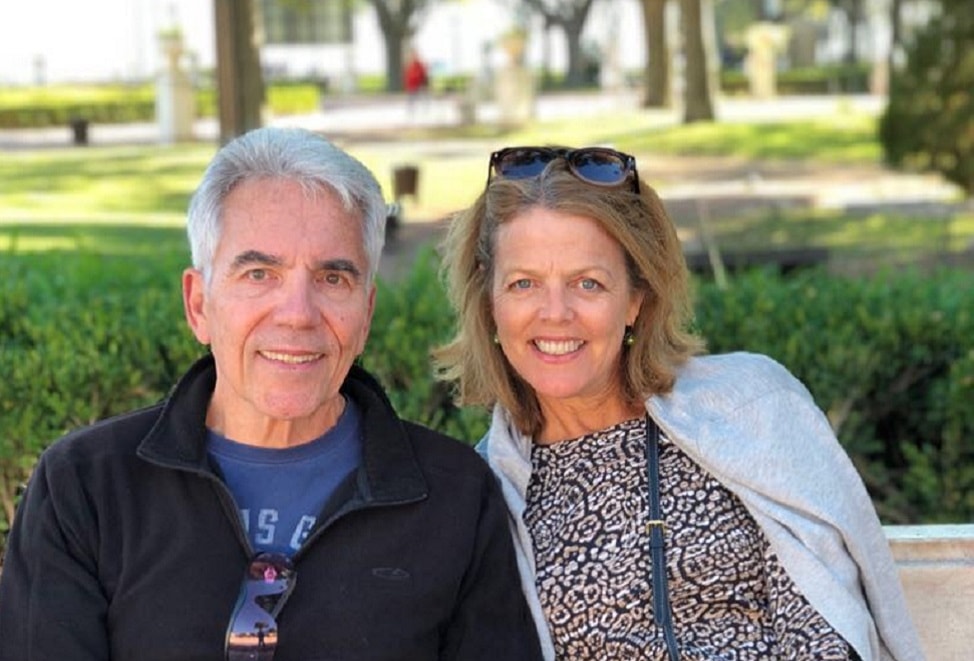
Much of the time we spend with our clients involves planning for their futures. Things like ensuring adequate savings and investing to meet future goals are critically important focus areas, especially for pre-retirees. For some of our clients, though, the future has arrived! This includes my recently retired husband, Marty, who has agreed to share some musings from his first year out of the workforce.
When asked what his primary concerns were heading into retirement, Marty had three focus areas: finance, fulfillment, and fitness.
His specific financial concerns included how to manage financially without a paycheck after decades of working; how to handle his cash balance pension plan and 401(k); sorting out when to begin Social Security and Medicare; and the possibility of a bear market early in retirement.
A year later, here’s what he had to say:
Finance
My advisor helped me to effectively replicate a paycheck by figuring out the most tax efficient account(s) from which to withdraw funds, and by handling the monthly electronic transfers from my investment account to my bank account. Easy and painless!
My employer offered limited retirement planning advice. HTG analyzed the lump sum vs. annuity choices for my cash balance plan and recommended a course of action based on our unique situation. My 401(k) plan offers good investment options at reasonable cost so I’ve left it where it is for now. I will, however, consider a rollover to my IRA for an even broader selection of investments.
Because we had adequate cash flow from other sources to cover our expenses, I decided to delay receiving Social Security benefits until age 70, which resulted in my benefit amount being 32% higher than it would have been had I started receiving benefits at my full retirement age of 66! Your advisor should be able to help you analyze your unique situation and make recommendations for how to best fit Social Security into your overall plan.
There are several timing issues when making Medicare decisions. I would suggest an in-person visit to your local Social Security Administration office to review your situation. Your advisor may also steer you toward a Medicare expert who can help. Gather intelligence early – knowledge is power and can help you to avoid costly mistakes.
A bear market? Well, it hasn’t happened since I retired but I don’t spend time worrying about it anymore. Our portfolio is structured to meet our long-term goals with a pool of stable assets upon which to draw in down markets.
Fulfillment
As for filling my days in retirement, I keep busy by pursuing the same leisure activities I enjoyed while I was still working and I’ve added a few more to my life. I’m honing my crossword puzzle skills and have greatly expanded my reading list! I have more time for fishing and boating, and I have taken up organic gardening. Our local “senior college” offers interesting courses. I regularly go to the gym and, depending upon the season, enjoy walking, running, biking, snowshoeing, and cross country skiing.
We moved three years before I retired, so I was unfamiliar with community outreach opportunities. A little online research and talks with the neighbors helped me zero in on areas of interest. In the past year, I’ve become a volunteer for a veteran’s organization where able-bodied vets like me assist disabled vets to participate in various physical activities, and I volunteer in the local community garden and at the local food pantry. Ask other retirees how they keep busy. With a little research, it’s easier than you think to find activities that match your interests.
Fitness
To stay healthy physically and mentally, I get lots of regular physical exercise, and I try to eat healthfully, get plenty of sleep, and take advantage of preventive health services. From what I’ve read, social connections are important to aging in a healthy way. I’m working to make new friends (which for someone with introverted tendencies like me takes some effort!) and to stay connected to old friends.
Marty is finding that this new phase of life is a work in progress. Retirement will look a little different for everyone. Being prepared gives you a leg up, and working with an advisor (before, during, and after) can help make this transition smoother. A positive attitude, an open mind, and a sense of humor are the other key ingredients in the recipe for a successful retirement.